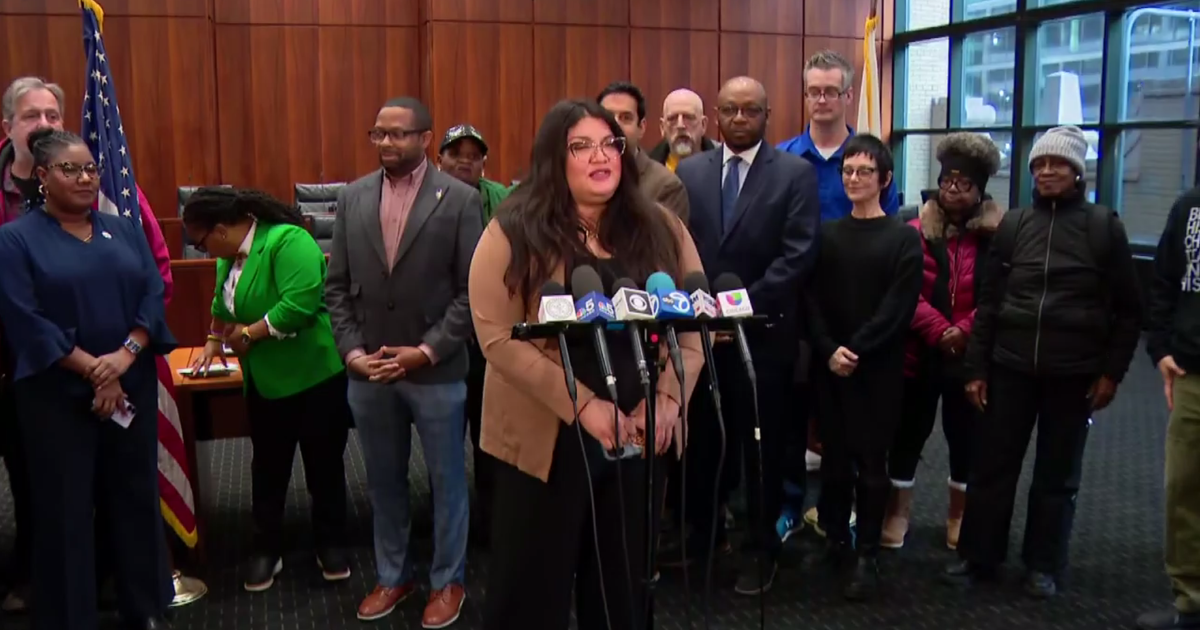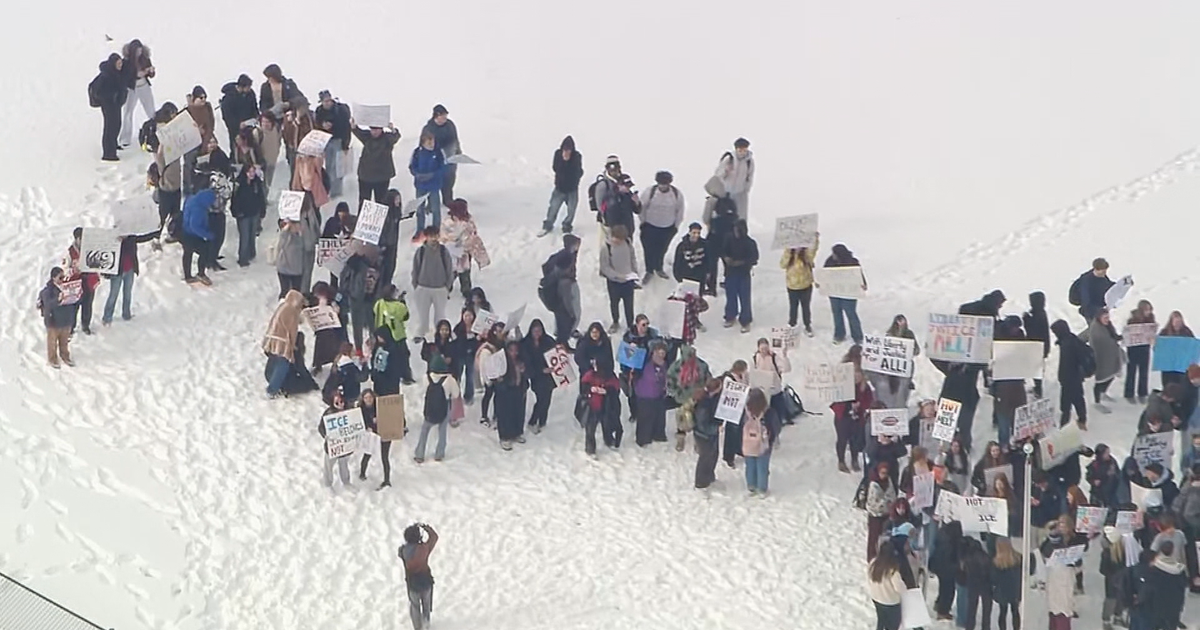I-Team update: New rules regarding restraints & arrests of young students
TEXAS (CBSNewsTexas.com) — As students head back to class, there are new rules for schools this year.
The State of Texas can no longer use one specific form of discipline on young students.
"It was one victory," said Senator Royce West (D-Dallas) as he talked about the change and discussed how the legislative session recently ended.
In a bipartisan effort, the Democratic senator joined Republican Representative Lacy Hull to get "No Kids in Cuffs" passed.
The new law now prohibits "restrain(ing) a student 10 years of age or younger unless the student poses a serious risk of harm to the student or another."
Last fall, CBS News Texas partnered with stations around the country digging into this issue.
I-Team: Handcuffed and restrained in hallways
Handcuffed in hallways: Proposed laws would ban arrests & restraint of children
CBS FINDINGS REGARDING STUDENTS WITH DISABILTIES
According to a CBS analysis of the latest available data, the I-Team learned in a three-year period, in Texas, school personnel or police restrained children nearly 100,000 times, at 99,653.
- Nine out of 10 of those children had disabilities.
- The I-Team found 107 of them had an orthopedic impairment—a physical disability.
- Forty-four percent were diagnosed with some type of "emotional disturbance," a mental disability.
"A big concern was the children with disabilities," said Senator West. "Most of the kids that were being restrained were kids with disabilities. And that, frankly, provided the…legislative impetus in order to get this passed."
PARENTS SPEAK OUT IN AUSTIN
In January, as the I-Team followed the legislative process, we also followed many parents and children to Austin where lawmakers listened to their stories.
"When she was in middle school, Leah started to come home with unexplained bruises," said Jeanna Brink, a mom who spoke at the news conference.
"My son went from a happy little boy to having constant nightmares (cut) at the site of a chair which uses a belt such as a highchair or seatbelt," said Thelma Lira talking about her little boy.
"He was violently and intentionally thrown in a room," said Tantiana Alfono as she spoke to the roomful of legislators and advocacy groups.
ADVOCACY GROUP SUPPORT
Among the advocates pushing "No Kids in Cuffs" was Shariq Abdul Ghani. Ghani is the director of the Texas-based Minaret Foundation.
Last year, Ghani testified in hearings about exactly what we saw in videos—young children handcuffed on their upper arms because their wrists were too small.
As Texas children head back to class, Ghani agrees with West that this is a "victory."
"It is so comforting to know that 'No Kids in Cuffs' will take effect for the 2023-2024 school year, and it will right out of the gate benefit tens of thousands of victims. It will ensure they are not victimized or traumatized in their own classrooms."
SUPPORT FOR I-TEAM REPORTING
Along with many advocacy groups and lawmakers, Ghani also thanked the I-Team.
"We're so grateful for CBS reporting the issue of restraints in Texas but also nationwide. It really helped move the conversation forward."
Ghani said news reports shined a spotlight on the subject with the public and lawmakers. "It really helped move the conversation forward and helped mainstream the conversation. What was sort of a taboo topic before...became very mainstream when we were able to put on the CBS logo and share the CBS videos. All the representatives received a copy. All the senators received a copy."
WHAT'S NEXT?
Senator West said he's been in the Senate long enough to know that just because a law is passed, it doesn't mean it will be followed.
West said as we head into our new school year, he'll be monitoring this and watching for reports of restraints and arrests of children under 10 who are not posing a threat.
WHY 10?
In Texas, the age limit is based on culpability.
Children—at least 10 years old—can be charged as a juvenile.
Ghani told CBS News Texas "that's the age lawmakers, law enforcement and schools all agreed on."
MORE LEGISLATION IN THE WORKS
In Texas, school districts are only required to report restraints of children in special education, not their regular education classes. The I-Team found many districts did not even submit those numbers to the state.
Ghani says advocates are now drafting more legislation to require more mandated reporting.







